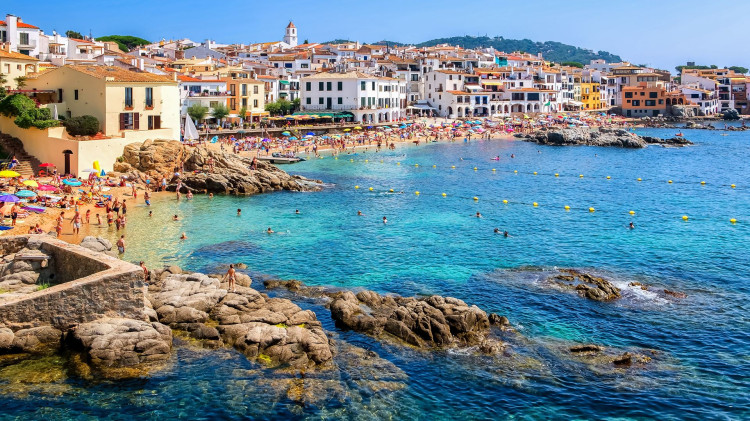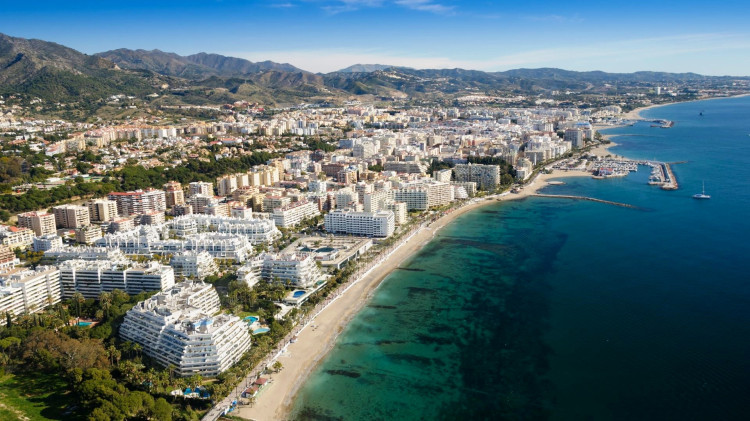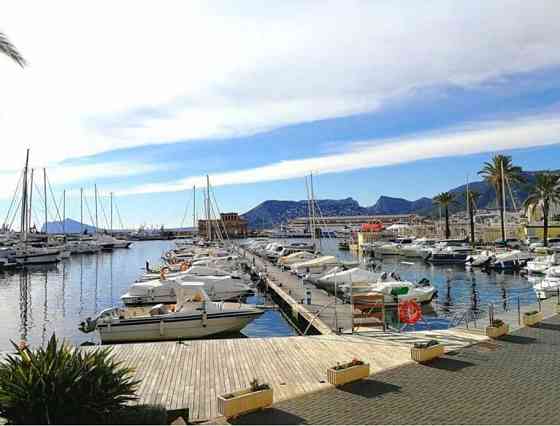
Real Estate Investing in Spain: A Complete Guide
Spain, with its rich culture, favorable climate and developed economy, has long attracted investors from all over the world. In recent years, real estate investment in this country has become even more popular due to the economic recovery and growth of the real estate market. This guide is intended for those who are considering investing in Spanish real estate and want to understand all the aspects and nuances of the process.
1. Why Spain.
- Economic stability: The Spanish economy is recovering from the 2008 global financial crisis. The country's GDP is showing steady growth and the unemployment rate is gradually decreasing. Spain is among the largest economies in Europe, which makes it attractive to investors.
- Quality of life: Spain is famous for its high quality of life, which attracts not only tourists but also permanent residents. The country has excellent medicine, quality education, developed infrastructure and a wonderful climate. These factors contribute to the increase in demand for real estate.
- Diversity of the real estate market: The Spanish real estate market offers a wide range of objects: from villas on the coast to apartments in the historic centers of major cities. This allows investors to choose properties according to their budget and investment goals.
2. main regions for investment
- Costa Brava and Costa Dorada: These regions in the north-east of Spain are popular with tourists due to their picturesque landscapes and developed infrastructure. Real estate here is in demand both for rent and for purchase for personal use.
- Costa del Sol: The southern coast of Spain, especially Marbella and Malaga, attracts many foreign buyers due to the warm climate and prestigious resorts. Here are high real estate prices, but also a high yield potential.
- Madrid and Barcelona: Spain's major cities offer great investment opportunities. Real estate in Madrid and Barcelona is in steady demand, making these cities attractive for long-term investments.
- Valencia: Spain's third largest city offers more affordable real estate prices compared to Madrid and Barcelona. Valencia is known for its high quality of life and growing rental market.
3. types of real estate
- Residential real estate: Residential properties include apartments, villas, houses and townhouses. The choice of property type depends on the investor's objectives: for rent, for personal residence or for resale.
- Commercial Real Estate: Investing in commercial real estate such as offices, retail space and hotels can be very lucrative. This segment of the market is growing, especially in major cities and tourist areas.
- Land: Buying land for construction can be a lucrative investment, especially in developing regions. It is important to consider zoning regulations and the possibility of obtaining building permits.
4. Legal aspects
The process of buying real estate in Spain includes several stages:
- Selecting a property: Visiting properties, negotiating with sellers.
- Preliminary contract: Conclusion of a preliminary contract (Contrato de Arras), making a deposit.
- Legal check: Check the purity of the transaction, no encumbrances on the object.
- Conclusion of the transaction: Signing the contract of sale at the notary, payment of the remaining amount and registration of ownership in the Register of Real Estate.
When buying real estate in Spain, you should take into account the following taxes and fees:
- Property Transfer Tax (ITP): Usually ranges from 6% to 10% of the value of the property.
- VAT (IVA): Applies when buying a new property and is 10%.
- Documentary deeds tax (AJD): Approximately 1.5% of the value of the property.
- Legal and Notary Fees: Costs of notary and lawyer fees, usually around 1% of the property value.
Visas and permits
Foreign investors who invest significant sums in real estate may qualify for a residence permit in Spain, known as a “golden visa”. To qualify for the visa, a minimum investment of €500,000 in Spanish real estate is required.
5. Financing
- Mortgage: Many banks in Spain offer mortgages for foreign buyers. Mortgage terms can vary, but typically foreign nationals are required to make a down payment of 30-40% of the property's value.
- Alternative sources of finance: Investors may also consider raising funds from private investors or investment funds. This can be useful if there is a shortage of own funds or to mitigate risks.
6. Property Management
- Rental: Renting out real estate can provide a steady income. It is important to consider the seasonality of the rental business, especially in tourist areas. Specialized companies can be used to manage rentals.
- Maintenance and repair: Regular maintenance and repair of the property is necessary to maintain its value and attractiveness to tenants. This may include repairs, cleaning, landscaping and other services.
7. Potential Risks
- Market Fluctuations: The real estate market is subject to fluctuations and investors should be prepared for possible price declines. It is important to carefully analyze the market and select properties with high growth potential.
- Legal risks: A thorough legal due diligence of the property prior to purchase is necessary to avoid problems with title and encumbrances. It is important to work with qualified lawyers and realtors.
- Economic and political risks: The economic and political situation in the country can affect the real estate market. Investors should keep an eye on macroeconomic indicators and political developments to react to changes in a timely manner.
Conclusion
Investing in real estate in Spain can be a profitable and promising investment, but requires careful preparation and analysis. Understanding the peculiarities of the market, knowledge of legal aspects and competent property management will help to minimize risks and ensure a high return on investment.
Install our app and get all the tools you need to search for real estate abroad in your smartphone! The mobile application will allow you to quickly access your personal account, manage your favorite properties and track your requests, directly exchange messages with sellers and buyers.


Constantly rising prices are increasing inequality between regions and social classes. In this article, we take a closer look at key market trends, barriers to new buyers, and potential for growth. We explain how regional differences, affordability factors, the influence of foreign investors, and market structure are shaping the current Swiss real estate landscape.

The Serbian real estate market is experiencing a period of active growth, attracting the attention of investors from all over the world. The combination of affordable prices, a stable economy, favorable legislation and high development potential makes this Balkan country one of the most promising areas for investment in residential and commercial real estate.

In 2024, the global real estate market showed significant price growth, especially in Turkey, Poland and Bulgaria. The main factors are inflation, increased availability of mortgage lending and active investments. Seoul and Tokyo stand out in the premium segment. In 2025, further moderate price growth is expected, although the dynamics will be uneven across different regions.

















 42
42  1
1  1
1  3
3 






